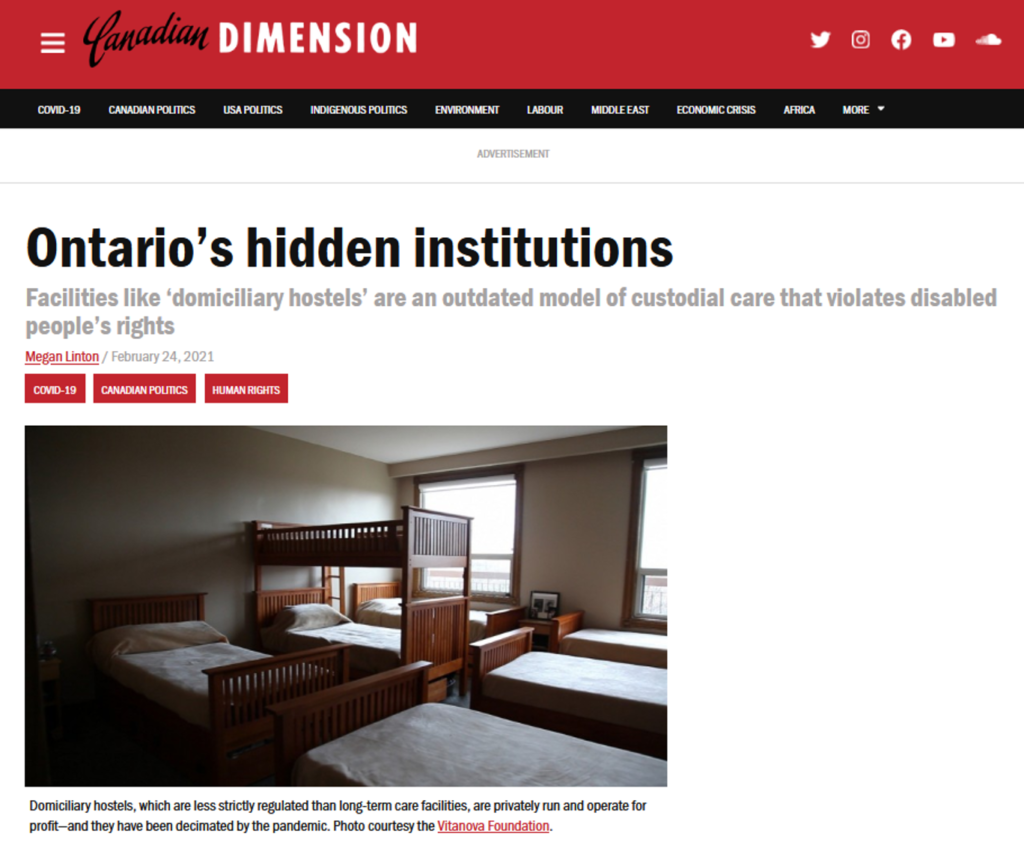Megan Linton (Sociology) the Tracing COVID-19 Data project’s critical disabilities studies expert supported by Kit Chokly (Communications) our data intersectionality expert and designer, have been leading the charge on making public the data invisility of people living in custodial institutions. The backgrounder is available here, and in essence we are trying to compile, with disability and open data advocates across the country, a foundational dataset so that these folks can be seen in policy and in action.
Megan, in addition to being an up-and-coming scholar, is also a person with the lived experience of a disabled person has been in the news talking about these invisibilities. Today she was interviewed by CBC’s Alan Neal on All in a Day

and authored the following article: Ontario’s hidden institutions Facilities like ‘domiciliary hostels’ are an outdated model of custodial care that violates disabled people’s rights.
The research team is digging for information to compile into a database with the Canadian Open Data Society, GO Open Data, and Open North and several people in the disabled people’s community and volunteers at large.
A work in progress Disabled People’s Database — Invisible Institutions in Ottawa created by the team was also released.
We will have a public crowdsourcing activity on March 6 for International Open Data Day. Stay tuned!

Comments on Posts